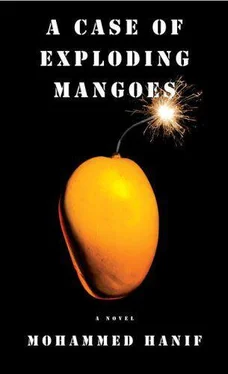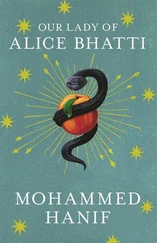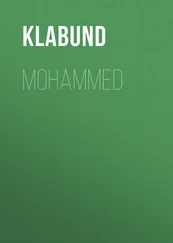It didn’t make the First Lady’s tater fry, in fact it barely got a sarcastic glance from her. “I am just trying to please my hosts. All for a good cause,” General Zia had muttered as the First Lady switched channels on the television.
“Hostess, you mean,” she had said, settling on a rerun of Dallas .
The First Lady wasn’t given to acts of rashness and her first impulse was to tear the newspaper apart, throw it away and try to forget the whole incident. He would see it and realise what a fool he was making of himself. At the age of sixty-three, with five titles before his name and a nation of one hundred and thirty million people to answer to, he was flying over floozies from Texas and then sitting there ogling their tits.
Then it suddenly occurred to her that there were thousands more out there looking at this picture: what might they be thinking? Nobody of course would be bothered about the famous foreign reporter, she guessed. She was a professional, she was an American, she could wear what she liked. If she had to wear push-up bras and low-cut dresses to get interviews with presidents, well, she was getting paid to do it. And as for him? She didn’t really know what the masses thought of him, but he was surrounded by people who’d tell him that it was all a conspiracy on the part of the newspaper, that the picture had been doctored and the editor should be put on trial in a military court for publishing obscene material.
But even if they believed what they saw in the picture, what then? He is only a mere mortal like us, people would say. Under all that talk of piety and purdah, there is a red-blooded man who can’t resist a bit of a peek. And then it occurred to her that there was another person, not in the picture, not named in the caption, who would be the real object of the nation’s ridicule. She could hear the giggles in cabinet meetings: We never knew the President likes them big and white . She could hear the sniggers in the National Command bunker: The old soldier is still homing in on the targets. Fine pair of anti-ballistics, sir . And what about those high-society begums: Poor man. Can you blame him? Have you seen his wife? She looks as if she just walked out of her village after spending the whole day in front of the stove .
The First Lady felt as if the nation of one hundred and thirty million people was, at this moment, looking at this picture, pitying her, making fun of her. She heard howls of laughter going up from the beaches of the Arabian Sea to the peaks of the Himalayas.
“I’ll gouge these eyes out,” she hissed, looking at the picture. “I’ll make mincemeat out of your old prick, you bastard.”
The duty waiter came running from the kitchen. “I am going for a walk. Tell TM’s men not to follow me,” the First Lady said, rolling the newspaper into a tight baton.
The man blindfolding me seems like an expert at this kind of thing. The half-moon scar on his freshly shaved left cheek, his pencil-thin moustache and his neatly pressed shalwar qameez give him the air of a reformed hoodlum. His fingers are gentle and he makes a swift little knot at the back of my head. He holds my hand and leads me out. The blindfold is loose enough for me to open my eyes but it’s tight enough that I can’t catch any stray rays of light. I wonder if you are supposed to keep your eyes open or shut behind the blindfold. As we step out of the bathroom, I breathe in large gulps of air, hoping to rid my body of the bathroom stink, but I can still taste it at the back of my throat. Not even Obaid’s collection of perfumes would be enough to kill this stench.
The corridor is wide, the ceiling is high and the floor under my boots is made of uneven stone slabs. The sound of our boots — which fall into a parade-like rhythm after the first few unsure steps — echoes in the corridor. We stop. He salutes. I just stand, half at attention, half at ease. I assume you are not supposed to salute someone you can’t see. The room smells of rose air freshener and Dunhill smoke. Paper rustles, a cigarette lighter sparks, a file is thrown across the table.
“Do what you need to do, but I don’t want any marks on him.” Major Kiyani’s voice is hoarse, as if his throat is reluctant to deliver this particular order. The file is picked up.
“I am not a butcher like you guys,” an impatient voice whispers.
“Let’s not be so touchy,” Major Kiyani says. A chair is dragged. “I am talking to my man here.”
Don’t listen to him, I tell myself. It’s the same old good-cop, bad-cop bullshit. They are all sons of the same bitch.
Steps move around the room. The burning end of Major Kiyani’s Dunhill is close to my face for an instant, then he is gone.
“Sit down please.” The voice addressing me belongs to the good cop but he is obviously not looking at me. I shuffle forward and stop.
“We need to remove that thing.”
I stay still. Are you supposed to remove your own bloody blindfold?
“Please uncover your eyes, Mr Shigri.”
The Army major sitting in front of me is wearing a Medical Corps insignia on the right shoulder of his khaki uniform; on a round, red velvet badge, two black snakes are curled around each other, mouths half open as if in a censored kiss. His long grey sideburns defy the military haircut regulations. He is slowly turning the pages of a yellow-green file, the tip of his tongue under his teeth, as if he has just discovered that I am suffering from a rare condition he has never treated before.
“I don’t work here,” he says, waving his hand to indicate the office.
The place has leather chairs, a green leather-topped table and a sofa with velvet covers. An official portrait of General Zia adorns the wall. The picture has been touched up so generously that his lips appear to be pink under his jet-black moustache. If Major Kiyani’s uniform, with his nameplate, wasn’t hanging on the wall, I would think we were sitting in the office of a bank manager.
I sit on the edge of the chair.
“We need to carry out a few tests. It’s very simple. You have multiple-choice questions in the first one. Just tick the one you think is right without thinking too much. In the second part, I’ll show you some pictures and you’ll describe in a few words what you think those pictures mean to you.”
First my loyalty to my country was suspect, now they want to probe the dark corners of my brain to find out what is causing all the turmoil in the land.
“If you don’t mind, sir, may I ask—”
“You can ask all you want, young man, but this is just a routine assessment. I have been sent from Islamabad and I am supposed to take back the results. I think it’s better that you spend your time with me doing this rather than with the people who are trying so hard not to leave any marks on you.”
Like all good cops, he makes sense.
He pushes a stack of stapled papers towards me, puts a pencil on top and removes his wristwatch.
“There are no right or wrong answers in this,” he says, trying to reassure me. “The only thing that matters is that you finish all sixty questions in twenty-five minutes. The trick is not to think.”
You can say that again. If I wasn’t the thinking type I would still be marching up and down the parade square commanding some respect, not sitting here trying to pass loony tests.
I glance at the paper. The cover page just says ‘MDRS P8039’. There is no hint of what is under that cover sheet.
“Ready?” he asks, giving me a faint, encouraging smile.
I nod my head.
“Go.” He places his watch on the table.
Q1: Would you describe your present mental condition as (a) depressed (b) mildly depressed (c) happy (d) none of the above
Читать дальше












